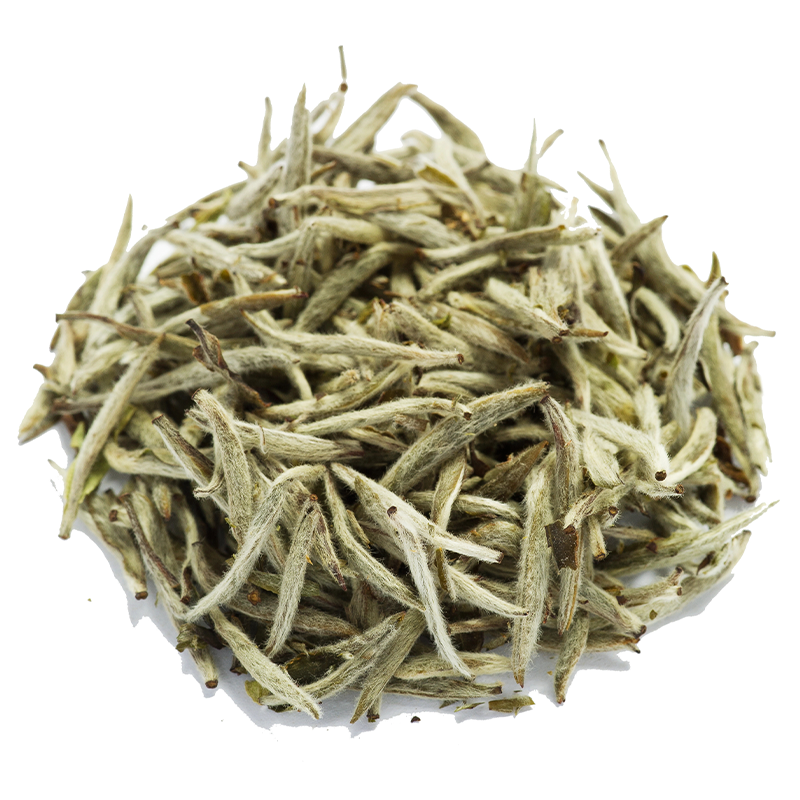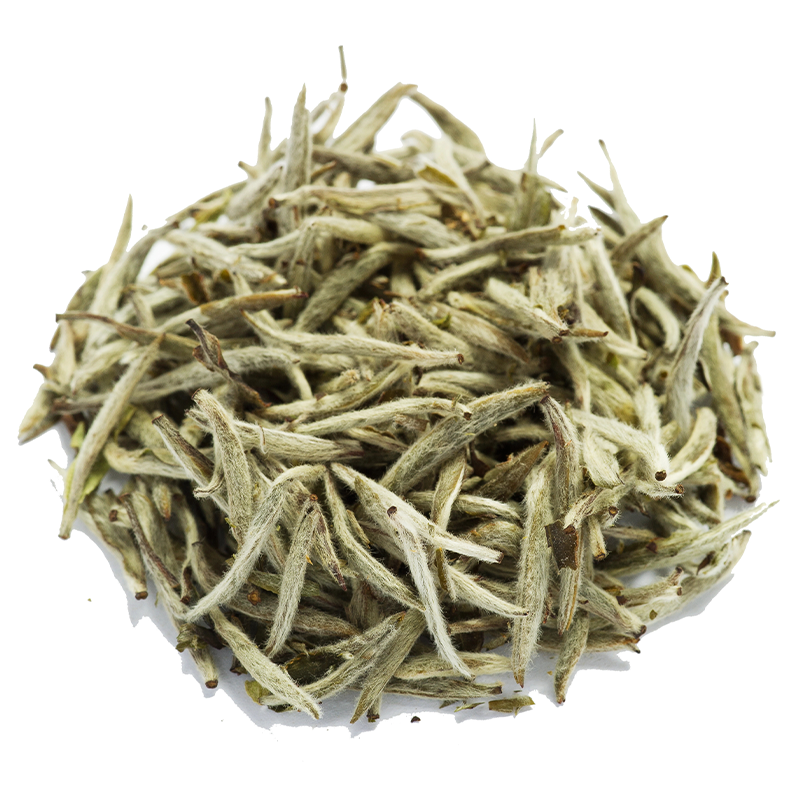Savor the Luxury of Silver Needle Tea
Silver Needle Tea is an exquisite and rare variety of white tea, cherished for its sophistication and unique taste. This tea is made from the youngest tea leaves, harvested only twice a year, ensuring a premium quality.
The delicate processing of these leaves results in a light, subtly sweet, and refined flavor, making it a highly sought-after choice among tea connoisseurs. Silver Needle Tea's smooth texture and gentle aroma offer a luxurious tea-drinking experience, perfect for those special moments of relaxation or for impressing guests with an exclusive beverage choice.
More About Silver Needle Tea
Silver Needle Tea holds a special place in the world of teas, especially in apothecaries and specialty tea shops.
This exquisite tea, characterized by its delicate, slightly sweet, and floral flavor, is made exclusively from the unopened buds of the tea plant. The unique processing of Silver Needle Tea preserves a high content of bioactive compounds like catechins, amino acids, and caffeine, which contribute to its acclaimed health benefits. Renowned for its antioxidant properties, this tea is not only a delightful sensory experience but also a boon for wellness enthusiasts.
Silver Needle Tea is often appreciated for its subtle taste and therapeutic qualities. It stands as a symbol of elegance and purity in the tea world, reflecting centuries of tea culture originating from the Fujian province of China. Its consumption is not just about savoring a cup of tea; it's an indulgence in a rich heritage and a testament to the art of tea making, blending tradition with health-promoting properties.
Know Your Ingredient: Silver Needle Tea
| Latin Name | Camellia sinensis |
| Active Ingredients | Catechins, amino acids, phenolic acids, flavonol/flavone glycosides, aroma precursors, caffeine |
| Classification Secondary Metabolite | Polyphenols (such as catechins, flavonoids) |
| Flavor | Subtle, delicate, slightly sweet, floral |
| Common Use | Consumed as a high-quality tea, known for its health benefits such as antioxidant and anti-inflammatory effects |
| Origin | Originated in China, particularly in the Fujian province |


